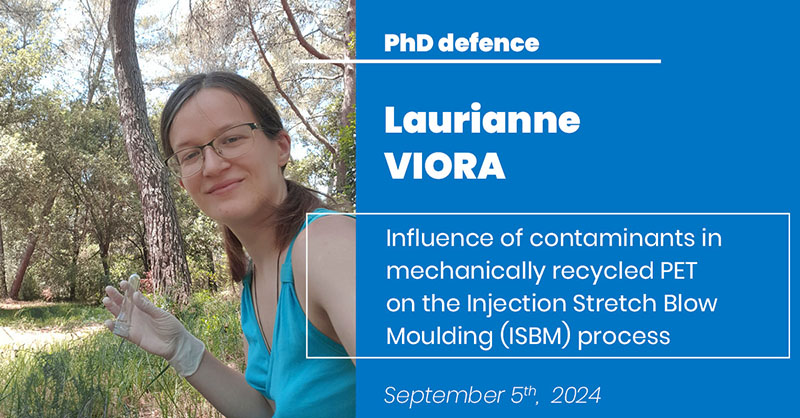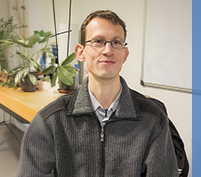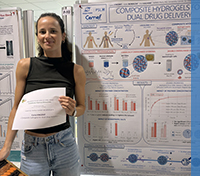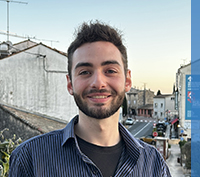PhD defence of Laurianne Viora
Influence of contaminants in mechanically recycled PET on the Injection Stretch Blow Moulding (ISBM) process

Laurianne Viora has conducted her doctoral research under the supervision of Christelle Combeaud and Lean-Luc Bouvard, S&P team. She will defend her PhD in Computational Mechanics and Materials on Septemer 5th, 2024 in front of the following jury (if agreed by the reviewers):
Mme Olga KLINKOVA Institut supérieur de mécanique de Paris (ISAE-Supméca) Reviewer
Mme Sandrine HOPPE Ecole Nationale Supérieure des Industries Chimiques (ENSIC) Reviewer
M. Fabrice SCHMIDT Institut Mines Télécom d’Albi (IMT Mines Albi)
M. Didier PERRIN École nationale supérieure des mines d’Alès (IMT-Mines d’Alès)
M. Jean-Luc BOUVARD MinesParis (Centre de Mise en Forme des Matériaux-CEMEF)
Mme Christelle COMBEAUD MinesParis (Centre de Mise en Forme des Matériaux-CEMEF)
M. Gilles DENNLER Centre Technique Industriel (CTI) de la Plasturgie et des Composites français (IPC)
Abstract:
Plastic pollution and resource depletion are critical issues of the 21st century. These problems are addressed by European legislation, which mandates that industries incorporate 25% of recycled Poly(ethylene terephthalate) (rPET) in the production of new bottles by 2025. Some companies aim to manufacture bottles with 100% rPET. But is this feasible? How do the contaminants – particles that remain after the mechanical recycling process – impact the parameters of the blowing machine? To answer these questions, two types of rPET from different locations (Europe and outside Europe) are compared with a virgin one. Two mixtures of virgin PET and rPET are also studied. The European rPET is found to be more contaminated than the other rPET and virgin PET. Furthermore, its molecular weights are lower than those of virgin PET. The molecular weights of non-European rPET are very similar to the virgin grade. These differences in composition (contaminants and molecular weights) affect the Injection Stretch Blow Molding (ISBM) process. With an increased proportion of contaminants, the ability for amorphization is reduced during the injection process. The forming range is narrowed by the cold crystallization onset. With contaminants, the preforms are warmer at the beginning of the blowing process for the same supplied heat power. Regarding the stretching above the glass transition (Tg), the use of contaminated rPET accelerates the rate of blowing but reduces the ability to strain-harden by induced crystallization development. Indeed, the contaminants can hinder the mobility of the chains and the alignment of the chains required to crystallize. However, the contaminated rPET can be stretched above the glass transition temperature (Tg) and can develop an organized microstructure upon stretching. This microstructure seems to be more difficult to obtain: the induced crystallization requires higher strain levels. Producing an rPET bottle is always possible with the concentration of rPET used in this study. All the rPET bottles meet the specifications of virgin PET bottles.
Keywords: Polyethylene Terephthalte, Recycled polymer, Mechanical recycling, Hot stretching, ISBM, Microstructure








